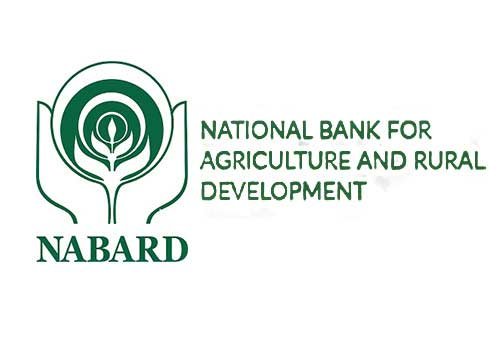Saturday, 21 February 2026

When an institution with the scale and scope of NABARD turns 44, it doesn’t just celebrate legacy—it scripts the next phase of transformation. This year, at its Foundation Day event in Chennai, the National Bank for Agriculture and Rural Development demonstrated exactly that: a visionary commitment to shaping India’s rural future with digital ambition, grassroots energy, and institutional heft.
From the verdant fields of Tamil Nadu to the icy frontiers of Leh, NABARD’s presence is no longer just financial—it is foundational. With the unveiling of its Leh Sub-Office, the apex rural bank signaled a strategic shift to deepen outreach in geographically and economically vulnerable regions. It’s more than symbolic. It’s systemic.
However the real pivot came with the launch of RuralTech CoLab—a bold new digital portal aimed at galvanising the rural tech startup ecosystem. This is not another government-backed sandbox. It’s a potential gamechanger.
By providing a unified interface for fintechs, agritechs, and digital capability partners, the platform promises to fast-track scalable, co-created solutions for India’s most underserved geographies. NABARD isn’t merely reacting to the digital economy—it is architecting it for Bharat.
“Our focus now is to scale high-impact solutions, nurture entrepreneurial ecosystems, and ensure sustainability remains at the heart of development,” said Shaji K.V., NABARD Chairman, striking a decisive tone of innovation with inclusion.
Indeed, NABARD’s renewed commitment to mission-led development could prove pivotal as India chases $5 trillion ambitions amid deep rural-urban asymmetries. The RuralTech CoLab offers more than access to innovation pipelines—it provides frontline delivery infrastructure, leveraging NABARD’s vast on-ground network: FPOs, SHGs, cooperatives, and rural institutions that constitute the capillaries of India’s real economy.
This year’s Foundation Day also included the launch of a WhatsApp advisory service for Farmer Producer Organisations (FPOs), enabling real-time, multilingual information delivery—from market intelligence to agronomic best practices. It’s a signal that NABARD is not afraid to meet rural India where it is: on mobile phones, and increasingly, in digital marketplaces.
Just as significant was the panel discussion on “Fostering Rural Enterprises for Inclusive Growth,” featuring policymakers, bankers, and grassroots entrepreneurs. The takeaway? India’s rural economy is not just a welfare recipient—it is a growth engine waiting to be empowered with the right tools, markets, and technologies.
In many ways, NABARD’s evolution mirrors India’s own development arc. From rural credit to climate resilience, from irrigation finance to women-led microenterprises, the institution has carried the invisible infrastructure of inclusion on its shoulders for over four decades. But the challenge now is more complex.
Climate change, shifting consumption patterns, digital skilling gaps, and capital constraints make rural development a multidimensional puzzle. The old playbooks won’t suffice. That’s why this Foundation Day felt different—it wasn’t about commemorating the past, but engineering a future-ready NABARD.
“From enabling access to finance and infrastructure to fostering innovation and resilience, our work has touched millions of lives,” Shaji K.V. remarked. “NABARD is prepared to lead from the front through digital transformation.”
The emphasis on scaling rural entrepreneurship is timely. India’s next phase of job creation will not come from metro-centric industrial corridors but from distributed micro-clusters of productivity across semi-urban and rural zones. NABARD’s role as an innovation orchestrator and capital enabler could be the secret sauce in this shift.
Critically, the Chennai event was not just a showcase of technology or policy but of partnerships. The presence of top officials from the Ministry of Finance, the Tamil Nadu state government, and public sector banks such as Indian Bank and Indian Overseas Bank highlighted a renewed multi-stakeholder alignment behind the rural agenda.
India’s rural transformation can’t be led by policy pronouncements alone. It needs institutional champions with deep networks, adaptive capacity, and trust capital. In NABARD, India has such a champion—now digitally supercharged.
As the bank steps into its 45th year, it’s clear that the new vision is not just about funding rural livelihoods—it’s about future-proofing them.
With platforms like RuralTech CoLab, strategic outreach to frontier regions, and next-gen information tools, NABARD is not just banking on rural India—it’s betting on its rise.
If the signals from Chennai are anything to go by, it’s a bet worth backing.